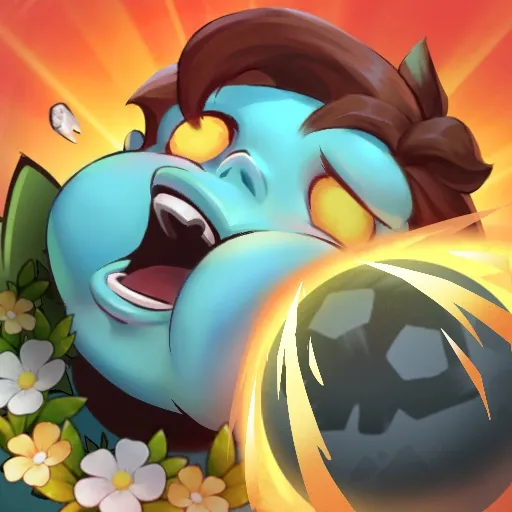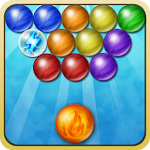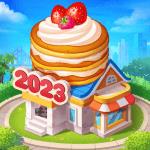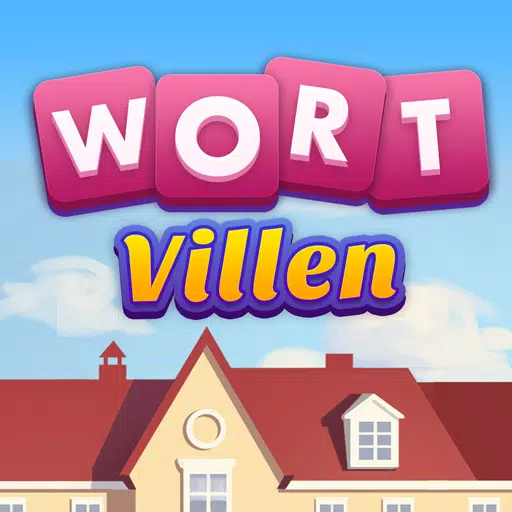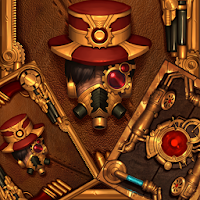"Rediscovering The Sims 1 & 2: Features Fans Miss"
The early iterations of Will Wright’s iconic life simulation games, The Sims 1 and 2, were renowned for their charming details, immersive mechanics, and quirky surprises that have since faded into obscurity. These early features, from personalized memory systems to unique NPC interactions, contributed significantly to the magic of these original titles. As the series evolved, many of these beloved elements were left behind, yet fans continue to reminisce about them and yearn for their return. In this article, we'll take a nostalgic journey through the forgotten gems of these first two games, highlighting features that have left a lasting impact on players.
 Image: ensigame.com
Image: ensigame.com
Table of Content
The Sims 1
- Authentic Plant Care
- Can’t Pay, Can’t Eat!
- A Genie’s Unexpected Gift
- The School of Hard Knocks
- Realistic WooHoo
- Fine Dining
- Thrills and Spills
- The Price of Fame
- Spellcasting in Makin’ Magic
- Singing Under the Stars
The Sims 2
- Running a Business
- Higher Education, Higher Rewards
- Nightlife
- The Excitement of Apartment Life
- Memories That Last, Love That Doesn’t
- Functional Clocks
- Shop ‘Til You Drop
- Unique NPCs
- Unlocking Hobbies
- A Helping Hand
0 0 Comment on this The Sims 1
Authentic Plant Care
 Image: ensigame.com
Image: ensigame.com
In the original game, indoor plants weren't just decorative; they required regular watering to remain healthy. Neglecting these plants could lead to them withering, which not only affected the home's aesthetics but also decreased the "Room" need, subtly nudging players to maintain their living spaces.
Can’t Pay, Can’t Eat!
 Image: ensigame.com
Image: ensigame.com
Freddy, the pizza delivery man, added a touch of realism to the game. If your Sim couldn't afford to pay for their pizza, Freddy would express his frustration, reclaim the pizza, and leave, rather than simply disappearing.
A Genie’s Unexpected Gift
 Image: ensigame.com
Image: ensigame.com
The genie lamp in The Sims 1 was a magical item that could be used once daily, offering a variety of wishes. One particularly intriguing outcome was when players chose the "water" wish. Instead of the expected simple water-related boon, there was a chance the genie would surprise the player with a luxurious hot tub. This unexpected twist added an element of excitement, especially during challenges like the rags-to-riches scenario, where the hot tub's arrival felt like a stroke of luck.
The School of Hard Knocks

Education in The Sims 1 was crucial, with academic performance influencing both future prospects and immediate circumstances. High-achieving Sims were often rewarded with a monetary gift from their grandparents, providing a welcome boost. Conversely, those with poor grades faced the harsh consequence of being sent to military school, which meant permanent removal from the household.
Realistic WooHoo
 Image: ensigame.com
Image: ensigame.com
The portrayal of WooHoo in The Sims 1 was surprisingly realistic for its time. Sims would undress before the act, and their reactions afterward varied widely, ranging from crying due to emotional overwhelm, to cheering, laughing, or even showing disgust. This added a layer of depth to the Sims' interactions.
Fine Dining
 Image: ensigame.com
Image: ensigame.com
Dining in The Sims 1 was a sophisticated affair, with Sims properly using both a knife and a fork. This level of detail in the eating animations was a feature that many players remember fondly, contrasting with the more simplified animations in later entries.
Thrills and Spills
 Image: ensigame.com
Image: ensigame.com
The Sims: Makin’ Magic introduced roller coasters as a thrilling entertainment option. Within Magic Town, players could experience two distinct roller coasters: one with a vibrant circus theme in Clowntastic Land and another with a haunted house aesthetic in Vernon’s Vault. Additionally, players had the creative freedom to build their own roller coasters on other community lots, enhancing the gameplay with high-speed excitement.
The Price of Fame
 Image: ensigame.com
Image: ensigame.com
In The Sims: Superstar, Sims could chase fame through the SimCity Talent Agency, with progress measured by a five-star Star Power system. Success in acting, modeling, or singing boosted their ranking, while poor performances or neglect could lead to a decline in fame. Missing five consecutive days at work risked being dropped by the agency, highlighting the fleeting nature of stardom.
Spellcasting in Makin’ Magic
 Image: ensigame.com
Image: ensigame.com
The Sims: Makin’ Magic added a rich spellcasting system, allowing Sims to craft spells and charms using specific ingredients. The Start Here Spellbook documented all magical recipes, uniquely featuring spells for both adults and children, making it the only entry where kids could become spellcasters.
Singing Under the Stars
 Image: ensigame.com
Image: ensigame.com
Campfire singalongs in The Sims 1 added a charming social element, with Sims gathering around a fire to sing folk songs. With three melodies to choose from, these singalongs provided an immersive outdoor experience, bringing Sims together in a cozy setting.
The Sims 2
Running a Business
 Image: ensigame.com
Image: ensigame.com
The Sims 2 introduced the ability for Sims to become entrepreneurs, opening businesses from home or dedicated venues. Whether running a fashion boutique, beauty salon, electronics store, florist, or restaurant, the possibilities were vast. Sims could hire employees to enhance productivity, though keeping staff motivated was crucial to maintaining profits. With the right skills and strategy, Sims could grow from small-time shop owners to business moguls or pursue innovative ventures.
Also read: 30 best mods for The Sims 2
Higher Education, Higher Rewards
 Image: ensigame.com
Image: ensigame.com
The Sims 2: University allowed teens to transition into young adulthood by enrolling in college. Living in a university town, they could choose from ten majors like Psychology, Economics, and Drama, balancing academics with social life. Graduation opened doors to advanced career opportunities, making higher education a pathway to success.
Nightlife
 Image: ensigame.com
Image: ensigame.com
The Nightlife expansion added inventories, new social interactions, and over 125 objects. Romantic pursuits became more dynamic, with NPC dates leaving gifts or hate letters based on the evening's success. Iconic characters like DJs, a Gypsy matchmaker, Mrs. Crumplebottom, and grand vampires enriched the game's social landscape.
The Excitement of Apartment Life
 Image: ensigame.com
Image: ensigame.com
Apartment Life, the final expansion for The Sims 2, introduced urban living. Sims could move into bustling apartment buildings, fostering new friendships, career connections, and romances. From raising kids near playgrounds to socializing in coffee shops, city life offered numerous opportunities. Trendy lofts and luxurious apartments with personal butlers added a layer of urban excitement.
Memories That Last, Love That Doesn’t
 Image: ensigame.com
Image: ensigame.com
The Sims 2's memory system allowed Sims to remember significant life events, shaping their personalities and interactions. This feature also introduced unrequited relationships, adding realism and drama. A Sim could develop deep feelings for another, only to have those emotions go unreciprocated.
 Image: ensigame.com
Image: ensigame.com
 Image: ensigame.com
Image: ensigame.com
Functional Clocks
 Image: ensigame.com
Image: ensigame.com
Clocks in The Sims 2 were more than decorative; they displayed the actual in-game time, allowing players to track hours without relying solely on the interface. Whether a classic wall clock or an elegant grandfather clock, each updated in real-time.
Shop ‘Til You Drop
 Image: ensigame.com
Image: ensigame.com
In The Sims 2, Sims had to shop for essentials like food and clothing. Refrigerators didn't magically stay stocked, and newly aged-up Sims needed to purchase new outfits to avoid wearing ill-fitting clothes, adding a layer of realism to daily life.
Unique NPCs
 Image: ensigame.com
Image: ensigame.com
The Social Bunny, an oversized rabbit, would appear when a Sim's social needs plummeted, offering companionship. The Therapist would intervene if a Sim experienced a breakdown, adding depth to the game's social dynamics.
 Image: ensigame.com
Image: ensigame.com
Unlocking Hobbies
 Image: ensigame.com
Image: ensigame.com
The FreeTime expansion introduced hobbies, enriching Sims' lives beyond work. From playing football to restoring cars or mastering ballet, hobbies fostered skill-building, friendships, and personal fulfillment. Dedicated hobbyists could unlock secret rewards and exclusive career opportunities, making leisure time meaningful.
A Helping Hand
 Image: ensigame.com
Image: ensigame.com
If a Sim had a strong relationship with a neighbor, they could ask for help in caring for their children, offering a personal alternative to hiring a nanny.
The Sims 1 & 2 were groundbreaking for their depth, creativity, and the wealth of unique features they introduced. While we may never see all these features return, they remain a nostalgic reminder of the unique experiences that made the Sims franchise so special in its early days.
Latest Articles















![Roblox Forsaken Characters Tier List [UPDATED] (2025)](https://ima.hhn6.com/uploads/18/17380116246797f3e8a8a39.jpg)




